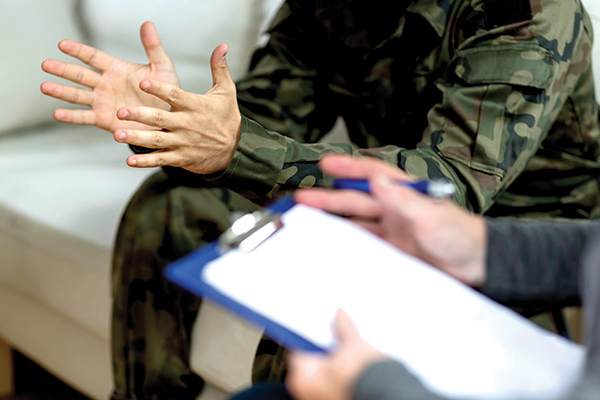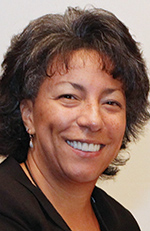
Throughout Indiana, we are expanding access and refining our approach to veterans’ justice statewide.
Our goal is to have at least 1 Veterans Court in each of the 26 judicial districts – eliminating all boundaries.
To accomplish this locally, we have broadened our county Veterans Court program to a district-wide program.
Finding an effective approach to mental health in the courts is a big job. And, for civilian judges and lawyers dealing with the struggles of a veteran after war and military life, it’s even harder. What we, the protected, encounter is drastically different from what they, the protectors, endure.
We are all safer and better when our veterans can cope and regain strength in life after military service. It is fundamental to America’s promise to help restore the life of a veteran living in turmoil, even to the extent of breaking the law.

Judges who are bringing Veterans Court teams together see the challenge and are finding a solution. They all end up finding this work one of the best parts of the job. That is why I share my invitation with my fellow Indiana judges.
I also share my invitation with military families for their personal sacrifice because along with military life come burdens, fear and anxiety. After military service, the pain, anguish and despair can really set in. At the very least, life just isn’t the same. I know this from personal experience as an American whose family sacrificed a son, Sgt. Steven P. Mennemeyer, on August 8, 2006, in the Iraq War. Steven is my stepson.
Before Veterans Court, veterans with minor legal trouble typically received probation and a referral to the VA. Once their case was over, many would be right back in that same, or a nearby courtroom in a year or two. Too often, our approach was just not getting to the root of their trouble.
This Veterans Court movement in Indiana started to pick up pace in 2012. That year, I was asked to report on Veteran Initiatives to all Indiana judges. Something I have done countless times since, to various groups throughout the state. I shared my personal motivation, the ups and downs of building strong partnerships, how to identify veterans – really everything I learned. I also reminded them of a couple things. One, Indiana’s Constitution guarantees restorative justice. And, two, veterans are their neighbors, fellow church members and volunteers with them in the school cafeteria. Plus, these warriors swore to protect and defend us. Ultimately, it was the patriotic spirit of my fellow judges that spurred them into action.